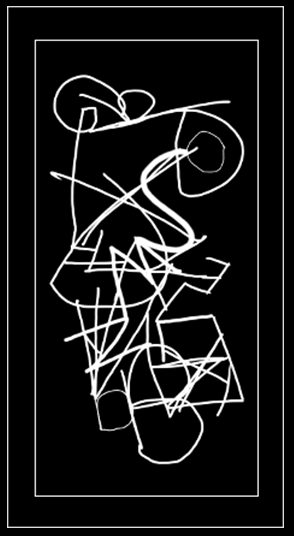Rogue Creation
Rogues are human/humanoid strangers of the Master Plane, each unique in their presence and how they strive. Character creation is a classless approach where you define what your rogue is capable of by creating your own permanent loadout of 6 abilities and using a point system to assign your abilities ranks that dictate how potent said abilities are. Rogue creation focuses solely on your own character and does not involve additional entities such as side-kicks, bodyguards, etc.
Things To Know
Rogue Name/Alias:
Prepare to create a unique character in this setting. Your name/alias should be original, like your character. Existing characters cannot enter the Master Plane.
Personality:
Think of how your character acts and reacts. Create a personality you can enjoy roleplaying with. This personality is factored in to how your rogue behaves during scenario simulations.
Appearance:
Providing your rogue’s gender, skin shade, body type, hairstyle, inspiration, outfit etc; Give me a starting point for my interpretation of your rogue when I design their art and miniatures for the visual presentation of the show.
Ranks and Rank Cost:
Ranks are assigned to your Attributes/Skills/Magic to determine how “potent” your rogue’s attributes/skills/magic are. Each Rank has a cost associated with it and players have 70 points to spend on Attributes and 40 points to spend on Skills/Magic. For perspective, the Rank Scale is as follows from highest to lowest:
Superhuman (Costs 35)
Awesome (Costs 30)
Incredible (Costs 25)
Exceptional (Costs 20)
High (Costs 15)
Above Average (Costs 10)
Average (Costs 5)
Below Average (Costs 4)
Low (Costs 3)
Weak (Costs 2)
Miniscule (Costs 1)
Attributes:
Study how each attribute plays a part in your rogue’s makeup.
Strength: Is a measure of a character’s raw, physical brawn. Strength is not just arm strength, but power generalized across the entire body.
Agility: Is a character’s “foot dexterity.” This measures general grace.
Reflex: Is a character’s “twitch speed.” This measures how quickly they can react physically and is a very important for the development of combat skills.
Intelligence: Is a exactly what it says, intelligence. IQ does not measure a character’s base of knowledge, but how quickly he can think and process information. The higher the IQ, the quicker and more completely a character can figure problems out.
Intuition: Is a catchall attribute for a character’s general awareness. Intuition can be used to detect if someone is lying to you, or to notice a sniper nestled high in a tree.
Willpower: Is a character’s mental strength. The higher the willpower, the more things the character can make himself do that lesser wills break at. Willpower is also very important for the development of future skills and abilities.
Toughness: Is a character’s overall measure of their ability to withstand punishment. The higher the toughness, the harder it is to hurt, knock unconscious and kill the character. Toughness is both a physical and mental attribute. It is a combination of strength and willpower, and should generally be somewhere in between those attributes, although it can be higher. A character may have great strength, but unless they also have great willpower, their resolve will crumble long before their muscle gives way. The same is true of a character with great willpower. No matter how strong their will to live is, they can only push the boundaries of their body so far.
——————————————————————————————————————
Skills & Magic:
Prepare to declare your own abilities. Rogues are human. Natural abilities that are humanly acquirable are considered SKILLS. On the flipside, Supernatural abilities that are out of the scope of what is humanly possible is considered MAGIC. Both Skills and Magic must have a specific function, not combo functions.
Example: A player cannot have “energy magic” as energy is everything. Please be as specific as possible and try not to exploit vagueness. As GM I will balance the game as best as possible and help you complete your vision. That’s said, declare the function of your skill/magic and FLAVOR IT AS YOU LIKE. This is your chance to make your character’s capabilities unique!
IMPORTANT NOTE REGARDING SKILLS/MAGIC and NPCs:
When building your character’s abilities, it's important to avoid ability hoarding or creating loopholes that grant excessive capability. Each character should have a focused and balanced loadout that fits their theme without overloading on abilities. Overstuffing a character with abilities—especially ones that stack or overlap—can disrupt the flow of gameplay and create unfair advantages. Keep abilities thematic, concise, and impactful, rather than piling on extra powers to cover every scenario. This ensures a more balanced, fair, and enjoyable experience for everyone in the game.
When creating your character, focus on abilities that enhance your character’s actions and traits, rather than controlling or manipulating NPCs as if you’re playing multiple characters. Abilities should empower your own character, not extend control over others or the environment beyond reasonable limits. This keeps the game fair and prevents any one player from dominating the narrative or gameplay. Stick to abilities that reflect your character’s strengths and role without overstepping into controlling the actions of others.
When creating characters, remember that balance is key. Abilities that cause multiple Rank Shift (RS) increases or debuffs should be carefully managed. Stacking too many RS penalties or boosts can make a character overpowered and disrupt the game's balance. Debuffs should be conditional, thematic, and limited, with clear opportunities for opponents to resist or counter them. The goal is to create characters that are powerful but still face meaningful risks and challenges. Keep your character's abilities in line with the narrative and system mechanics to ensure fair and exciting gameplay.

